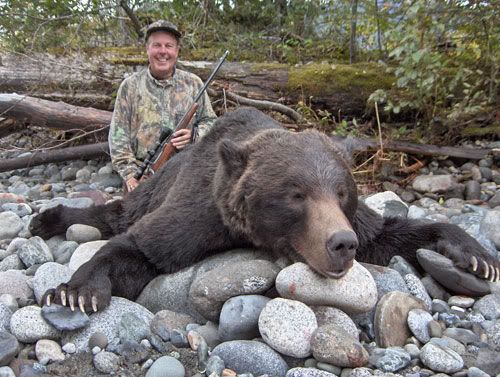
The Western Canada Wilderness Committee is a Vancouver-based environmental group specializing in wilderness preservation. In 1995, it had a paying membership of approximately 25,000, a full time paid staff of about a dozen people, a part-time staff of about eight, and dozens of volunteers. Since its inception in 1981, it has campaigned successfully to preserve such pristine places as South Morseby Island, the Kutzeymateen Grizzly bear sanctuary, the Stein Valley, Carmanah and Clayoquot Sound, for posterity, to perpetuity. People call it WCWC, or, usually with affection, “W-C-squared”.
Its founder is Paul George, who served as one of WCWC’s four executive directors, the other three being Adriane Carr and Joe Foy, and comptroller Brian Conner.
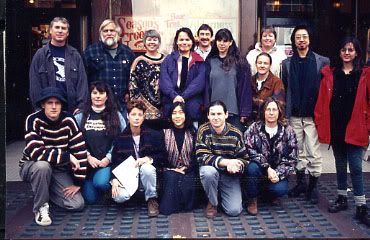
(Joe Foy, Paul George, Adriane Carr on upper left, Anthony Marr second from upper right)
One day in November 1995, Paul George received a phone call from me, in which I said without preamble, “I’m calling to see if your organization has room for one more campaign.”
“What do you have in mind?” asked Paul.
I briefly presented my vision of the BET’R Campaign (BET’R standing for Bear, Elephant, Tiger and Rhinoceros - the four major mammalian species most used in the old time traditional Chinese culture), and, now that it is airborne, that it needed support to stay airborne and gain altitude. Paul agreed on a meeting. They set a date, and said good-bye.
On the set date, with Adriane away and Brian busy in financial matters, Paul and Joe met me in the board room of WCWC’s maze-like warren in Vancouver’s Gas-Town, during which I presented a package containing newspaper clippings and audio-video tapes of newscasts on the BET’R campaign, and thirty letters of endorsement written by professors of various fields and universities praising highly a lecture given by me on a scientific theory I had advanced, with I had named the Omniscientific Cosmology.
In our second meeting a week later, Paul George agreed that WCWC would take on the BET’R Campaign, with me retained as WCWC’s “BET’R Campaigner” at a salary of $30,000 per annum, which was substantially lower than my salary at Zenon Environmental Inc., my previous place of employ, but it was no less than what Paul, Adriane and Joe were paying themselves. I jumped at the offer.
As of January 1, 1996, I became a full time campaigner of Western Canada Wilderness Committee, and the BET’R Campaign became a WCWC flagship campaign.
In May, after the victory of the Chinatown campaign, I was one month from embarking on the journey of my life, and I was filled with a sense of foreboding and trepidation. At best, I would encounter harassment from opponents at every turn. At worst, I could lose my life and that of my 25 year-old assistant Erica Dennison.
And who were these dreaded opponents? They were those humans whose main pursuit in life was to kill magnificent wild creatures for entertainment and ego gratification – Trophy Hunters, of the “Great White Hunter” tradition, and Recreational Hunters who, by definition, kill for entertainment.
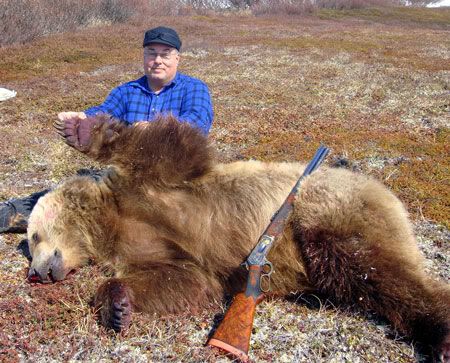
The idea of this anti-hunting expedition emerged in my mind less than two months before. On April 11, in a media conference hosted by the British Columbia provincial government at the Vancouver Public Aquarium, environment minister Moe Sihota announced a set of changes in the so-called Grizzly Bear Conservation Strategy. With high hope in our hearts, Joe Foy and I went to attend the conference.
Our hope was based on the result of the 1995 Angus Reed poll, commissioned by the conservation group Bear Watch, where over 80% of the respondents said they would support a ban of bear hunting in the province.
As it turned out, the conference was a great disappointment. Not only was bear hunting still condoned, it continued to be actively promoted. The nice-sounding term “limited entry hunt” was projected to the public, which won't save a single bear from being killed, but would prohibit non-hunters from purchasing hunting licenses and permits intended not to be used such that a number of bear lives be spared.
After the minister’s presentation and Q&A, the media converged upon Joe and me for comment, during which Joe used a phrase that stuck in my mind – “barbaric practice” – to describe the “sport” of trophy hunting and recreational hunting.
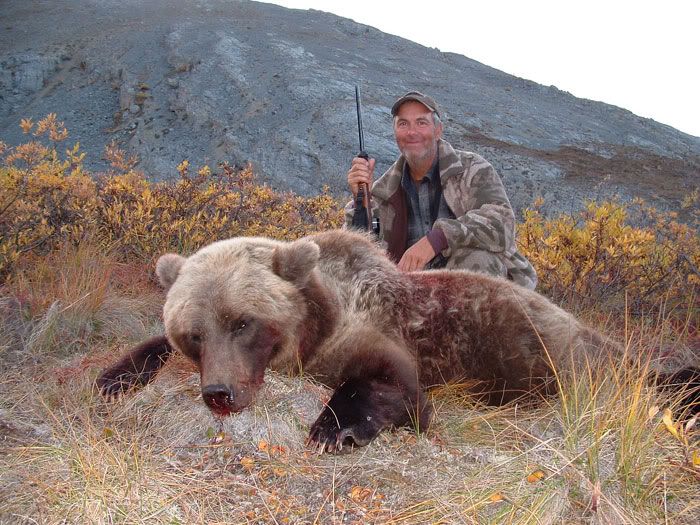
Days later, I came upon the government provision, available only in the province of British Columbia, called the Recall and Initiative Act. Given my exploring mind, the brain storm was inevitable, that if we could use the Act to force a province-wide referendum on the issue of bear hunting, based up the Bear Watch poll results, we stood a good chance of winning. I took the idea to the E-Team.
The first step according to the Act, I explained, was to perform an Initiative Petition, which requires the certified signatures from at least 10% of the registered voters in each and every one of the 75 electoral districts within the province, a few bigger in area than some small countries. If one of the 75 electorial districts fell short by just one signature, the entire Initiative Petition drive would fail. On top of this, all the signatures had to be collected within a designated 90-day period, the exact start and end dates to be mutually agreed upon by Elections BC and WCWC. And on top of this, the signatures had to be collected by “registered volunteer-canvassers”, each specific to his/her electoral district. Only succeeding in this petition could we move on to the voting phase.
To inform the public about this project via mass media, and to recruit enough volunteers in each and every electoral district, to organize the volunteers into a single fighting force, someone would have to visit each and every one of the 75 electoral districts throughout the province, in person. I proposed to do it myself.
This is not a matter of bravado or even responsibility. Over the years I had received unsolicited advice by the dozens as to what should be done or should not be done - in my own work. My response was always that the unsolicited adviser should take on the task himself or herself, and I would give him or her my support. So, since I was the person to propose the idea to E-Team, I should have first crack in executing it.
Not that I was unaware of the risk factor, but it was only after the proposal had been accepted by E-Team did it hit me on just how risky this venture could be, considering that any electoral district outside of the Lower Mainland was "red neck" territory. Since no one I knew of had ever pitted himself or herself in a big way against hunters, the hunters' reaction was unknown, though looming large was the mirage physical violence by those to whom killing is recreation. This I was willing to face, but what of Erica? Environmentalists had been hurt and even killed before - Chico Mendez, Karen Silkwood, Dian Fossey... Could I take on the responsibility of Erica's safety on top of my own?
Erica was a sweet-faced, head strong and energetic woman. She first gained my attention by being a volunteer for my BET’R Campaign. When the expedition was decided upon, and the need for a field assistant was announced, Erica applied, and the E-Team accepted her upon my recommendation.
Erica approached the danger aspect of the expedition with a nonchalant, almost cavalier attitude, to the point where I began to think that she was making light of the whole situation. But when we finally discussed it in detail, she revealed a deeper layer of herself, where the fear was present, but well managed. She said that she could take care of herself and take responsibility for her own safety.
At one point in our conversation on personal safety, we isolated four factors of consideration from the perspective of the E-Team, which we wrote each on two pieces of paper: stopping bear hunting, safety of the expedition personnel, cost, and WCWC’s wellbeing. We took one set each to arrange them in what we considered descending order of priority to E-Team. And we came to the same conclusion. In descending order, E-Team’s priorities would be: 1. WCWC’s wellbeing, 2. cost, 3. stopping bear hunting, and 4. the expedition personnel’s safety. But we did not blame E-Team for it, and took responsibility for our own safety as a team.
Erica and I went as far as to conclude that in the worst case scenario, where we got killed in the course of the road tour caused somehow by hunters, the hunters’ reputation would be hugely damaged, and the bears would benefit. This seemed to envelope us like some bullet-proof force field, which just might fail should push goes to shove.
Another time, Erica added that she feared more for my safety than her own, on account of my race and position in the team. The concern was real, considering the presence of US-implanted White Supremacists along our route, who would most likely also be hunters. I countered with the factor of her gender, ad nauseum.
With each passing day towards D-Day, my apprehension became more acute. At times, in the middle of the night, frightening scenarios would play themselves out in my mind, garnered mostly from Hollywood movies and TV shows, but seemingly with lives of their own, none of which I mentioned to Erica.
On her part, with her enthusiastic and efficient though at times insubordinate assistance, the preparation for the Bear Referendum road tour progressed by leaps and bounds. She had already set up meetings and presentations on Vancouver Island - our first leg - at Campbell River, Cortes Island, Nanaimo, Victoria, Comox, Courtenay, Denman Island, Port Alberni, Gold River, Salt Spring Island, Pender Harbour, etc. This was done in chronological order according to the route I had planned, which would cover over 50 cities in 60 days.
We worked right through the long weekend. Even last night, at 1:30 a.m., I coached Erica on the phone to work with Excel, when Erica was still in the office, all by herself, which, in that part of the city, took some courage unto itself. Of all her attributes, what impressed me most was not her seeming lack of fear, but her courage in the face of it.
More on this campaign in [ON MY WAR PARTH - 006]
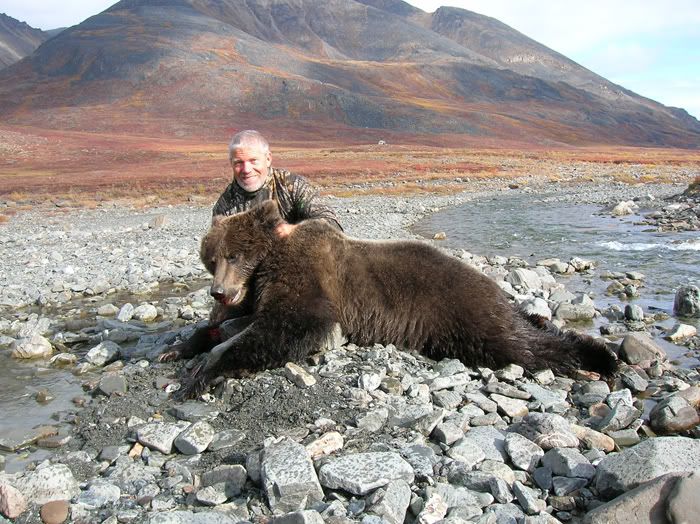
May 7, 1996, Tues.
The Vancouver Sun
by Nicholas Read
Help our Grizzlies; stop hunting them
Moe Sihota, the provincial environment minister, has taken steps toward protecting Grizzly bears. No one can deny that. He’s announced a new Grizzly bear reserve in Tweedsmuir Park, increased fines for poachers, banned Grizzly hunting in the Okanagan and Southern Selkirks, and established a limited-entry hunting season for Grizzlies.
There is also no disputing that Grizzlies need protection. There are only 4,000-13,000 left in the province - estimates vary according to source - and unless serious steps are taken to ensure that they survive, they won’t.
What is at issue, however, is whether Sihota has done enough.
According to the Western Canada Wilderness Committee, he hasn’t. WCWC campaigner Anthony Marr says the maximum poaching penalty of $25,000, though higher than the previous $10,000, is still merely “a slap on the wrist”, and the 103 hectare Tweedsmuir reserve, while welcome, isn’t anywhere near what Grizzlies need to exist.
The WCWC also says that all sport hunting should be abolished.
That certainly would be the easiest, and arguably least contentious, move the government could make. An Angus Reed poll conducted last year said 78% of British Columbians believe trophy hunting should be outlawed.
That would affect Grizzlies directly, says BC Wildlife Branch chief Ray Demarchi, because Grizzly meat is not fit to eat, meaning the only reason hunters have to kill a Grizzly is for its head, hide and claws.
Yet, Grizzly hunting continues in part because officials like Demarchi, hunters themselves, wish it.
He is a third-generation hunter whose sons have followed his lead. So you have to take that into account when he explains why Grizzly hunting is permitted.
First: There is a “recreational demand” for it, he says. So people simply like killing bears. Demarchi can’t say why - hunting’s allure is hard to define - but it’s there. As proof, he says 400 BC residents and 1,200 non-residents seek permits to kill a Grizzly each year. About 350 to 400 bears are actually slaughtered legally.
Second: Grizzly hunting gives employment to guide-outfitters and hunting supply stores, Demarchi says.
Third: Hunting makes bears more wary of humans and therefore less likely to invade urban areas where they could be shot as nuisance animals, he believes. However, he concedes there is no scientific evidence for this.
His points are in direct contrast to a ground-breaking, 10-year study of Grizzlies completed in 1992 by biologist Robert Wielgus who concluded that trophy hunting can have a severely deleterious effect on Grizzly populations.
Because government regulations forbid the killing of female bears with cubs, most hunted Grizzlies are large males. Conventional government wisdom says by killing large males there will be more food available for mother bears and cubs.
But Wielgus’s research says this isn’t so. He said if the head male of a harem of three females is killed, the females will become vulnerable to young male bears who will attempt to establish their own harem by killing the dead male’s cubs and forcing the females into heat again.
Thus, to safeguard their cubs, the females may be forced to move into food-poor areas where the health of their cubs may suffer. And this, combined with trophy hunting, can result in entire populations being threatened.
Nevertheless, the government has chosen to disregard Wielgus’s research and rely instead on the opinions of the hunting fraternity within the Wildlife Branch. In fact, all questions to Sihota’s office about hunting are referred directly to the Branch.
In announcing his initiatives, Sihota said, “In my opinion, the Grizzly is an icon of what BC is about . . . one of the most magnificent creatures that has ever roamed the planet.”
Yet sport hunting of this magnificent creature continues, despite what most British Columbians would prefer. And the elected officials who claim to want to save the bear refuse to say why killing it for kicks is still tolerated.
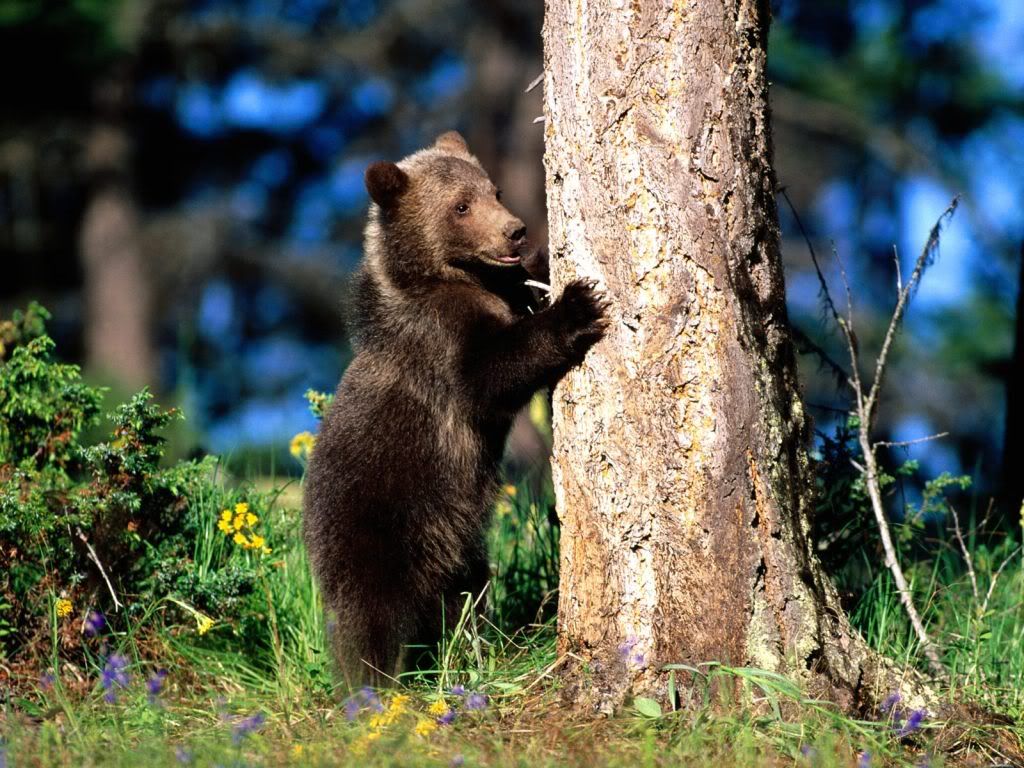
Anthony Marr, Founder and President
Heal Our Planet Earth (HOPE)
Global Anti-Hunting Coalition (GAHC)
Anthony-Marr@HOPE-CARE.org
www.HOPE-CARE.org
www.facebook.com/Anthony.Marr.001
www.facebook.com/Global_Anti-Hunting_Coalition
www.myspace.com/AnthonyMarr
www.youtube.com/AnthonyMarr
www.HomoSapiensSaveYourEarth.blogspot.com
www.DearHomoSapiens.blogspot.com (AM's 3rd-book-in-the-making)
www.myspace.com/Anti-Hunting_Coalition
www.ARConference.org
Raminothna
The Fortunate and The Called Upon
at your service
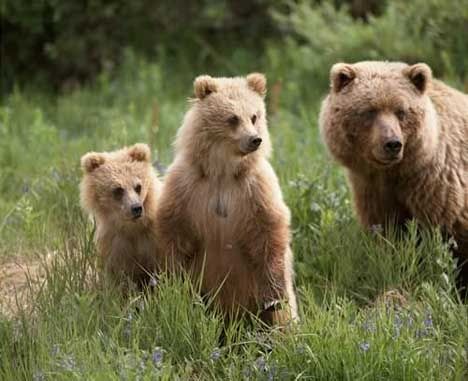
Anthony Marr, Founder and President
Heal Our Planet Earth (HOPE)
Global Anti-Hunting Coalition (GAHC)
Anthony-Marr@HOPE-CARE.org
www.HOPE-CARE.org
www.facebook.com/Anthony.Marr.001
www.facebook.com/Global_Anti-Hunting_Coalition
www.myspace.com/AnthonyMarr
www.youtube.com/AnthonyMarr
www.HomoSapiensSaveYourEarth.blogspot.com
www.myspace.com/Anti-Hunting_Coalition
www.ARConference.org
2 comments:
Linked you on FaceBook: https://www.facebook.com/pages/Anti-Hunting-In-America/191368640932725?sk=wall
Great post, keep up the good fight!
Bear hunting and moose hunting is among the most enjoyable kinds of game within the U . s . States. However, it is also probably the most controlled because of using up populations and also over hunting previously. Most of US states have some type of legal bear hunting. You need to simply be aware of laws and regulations over it and what you could and should not do. This information will provide you with a little insight and help assist you on the right track to legally search bears in your town
Post a Comment